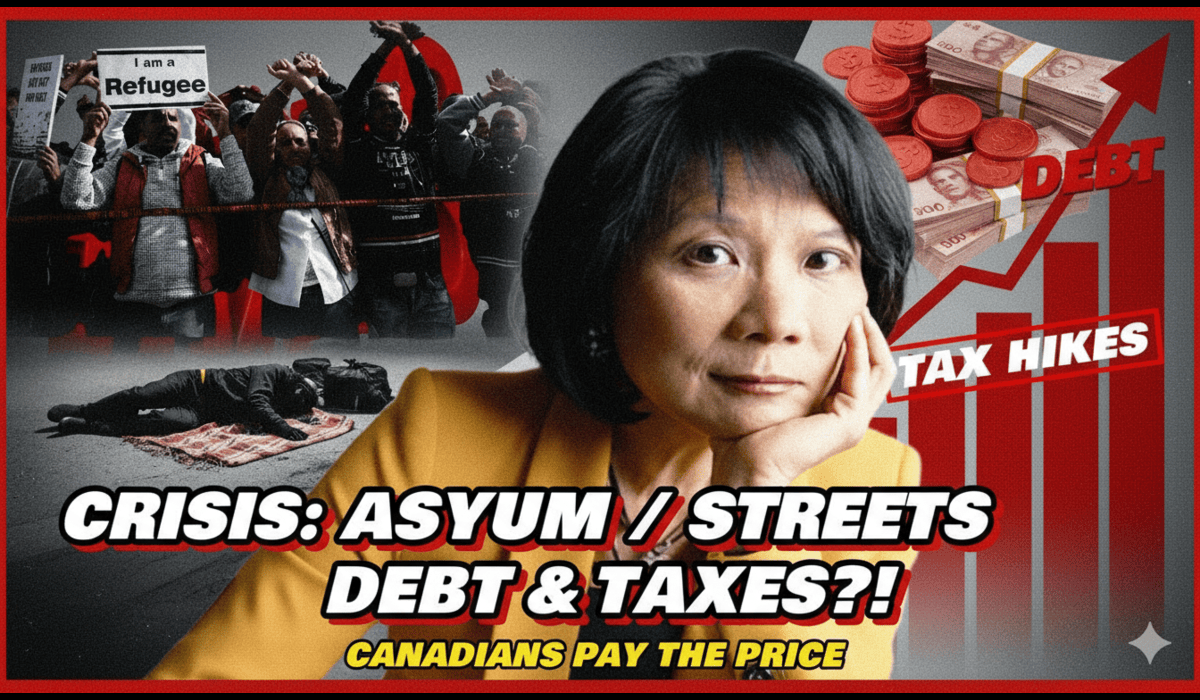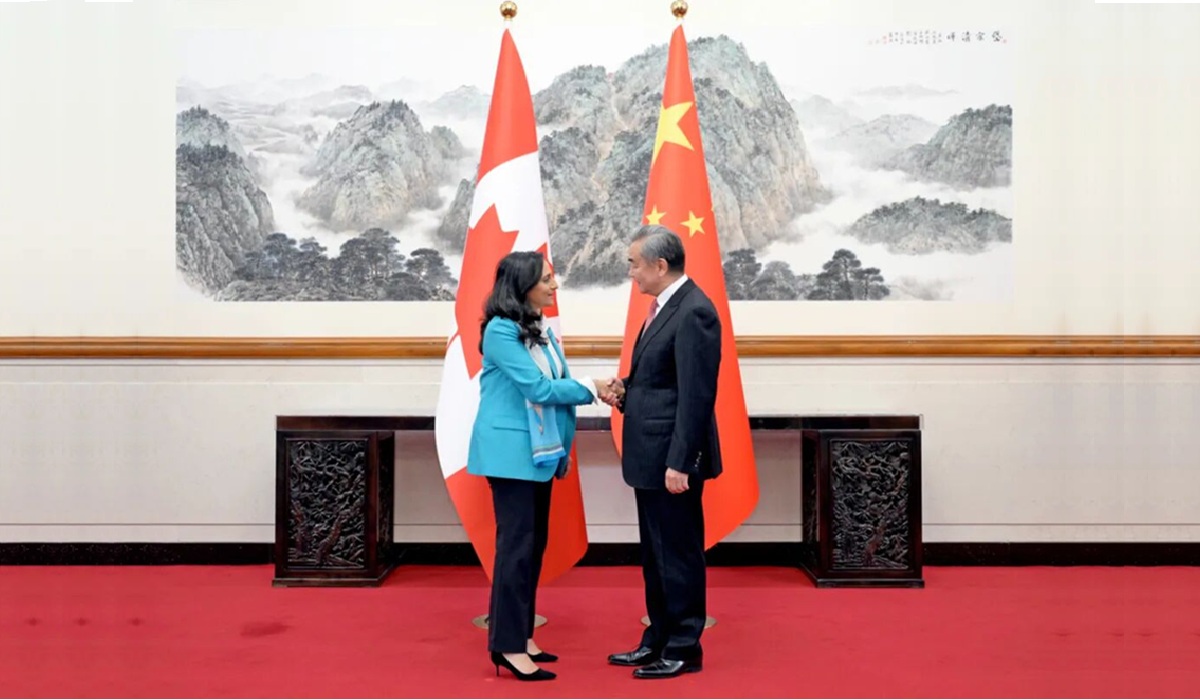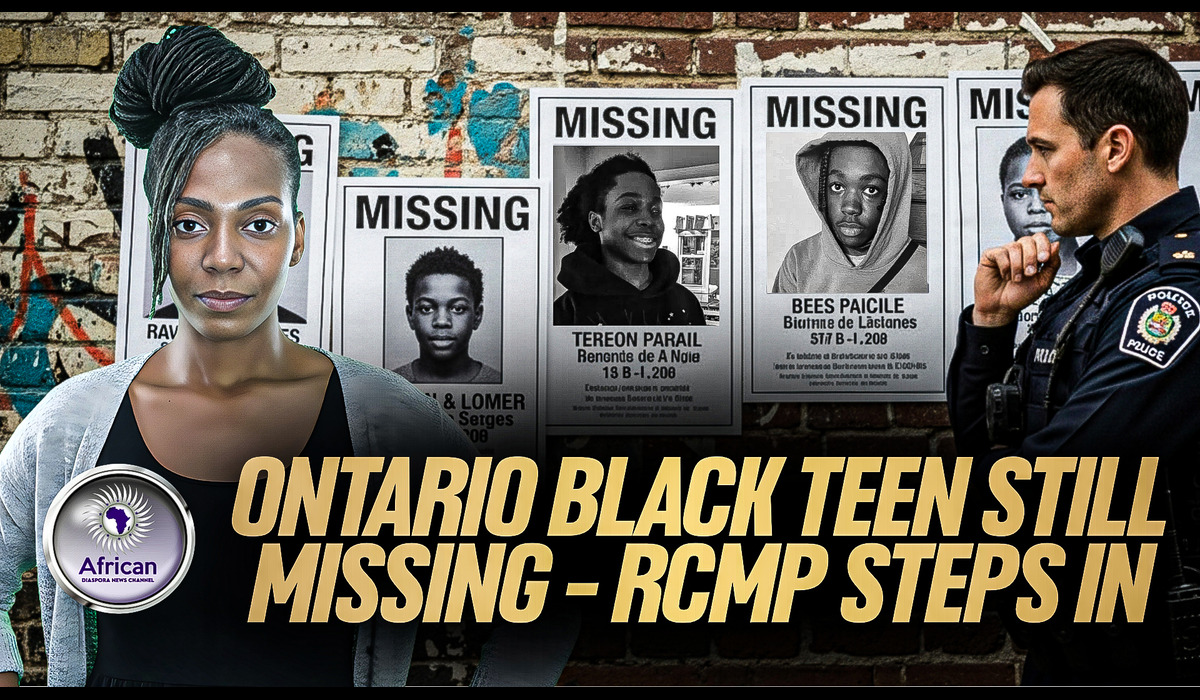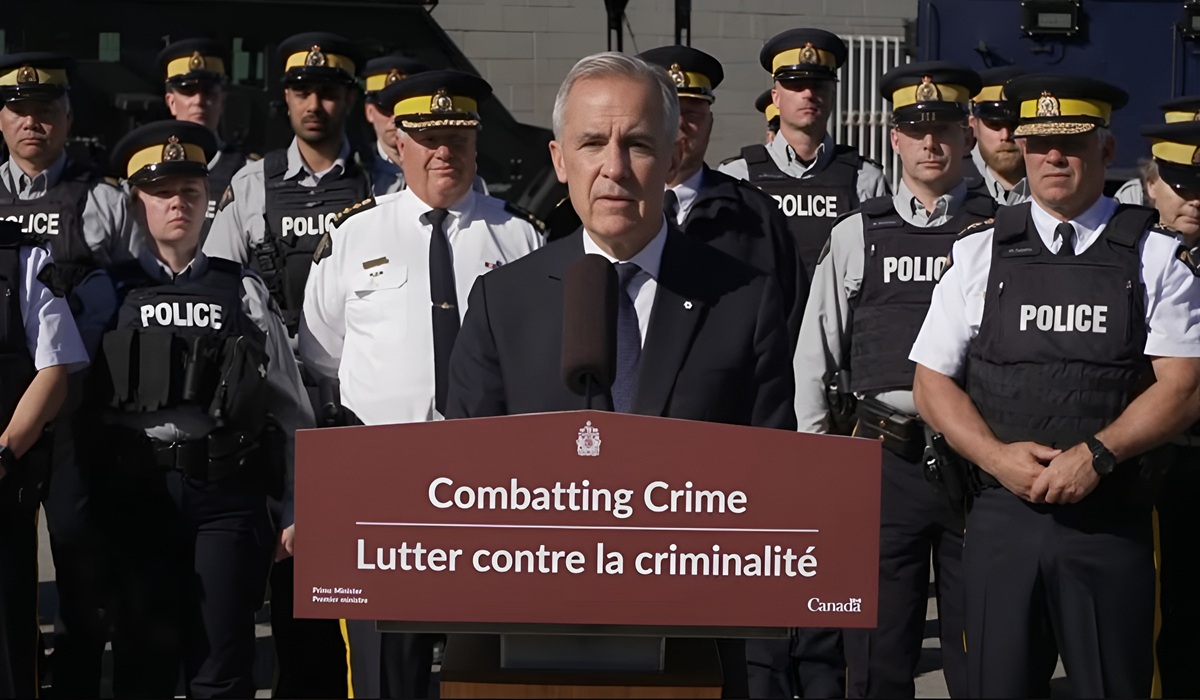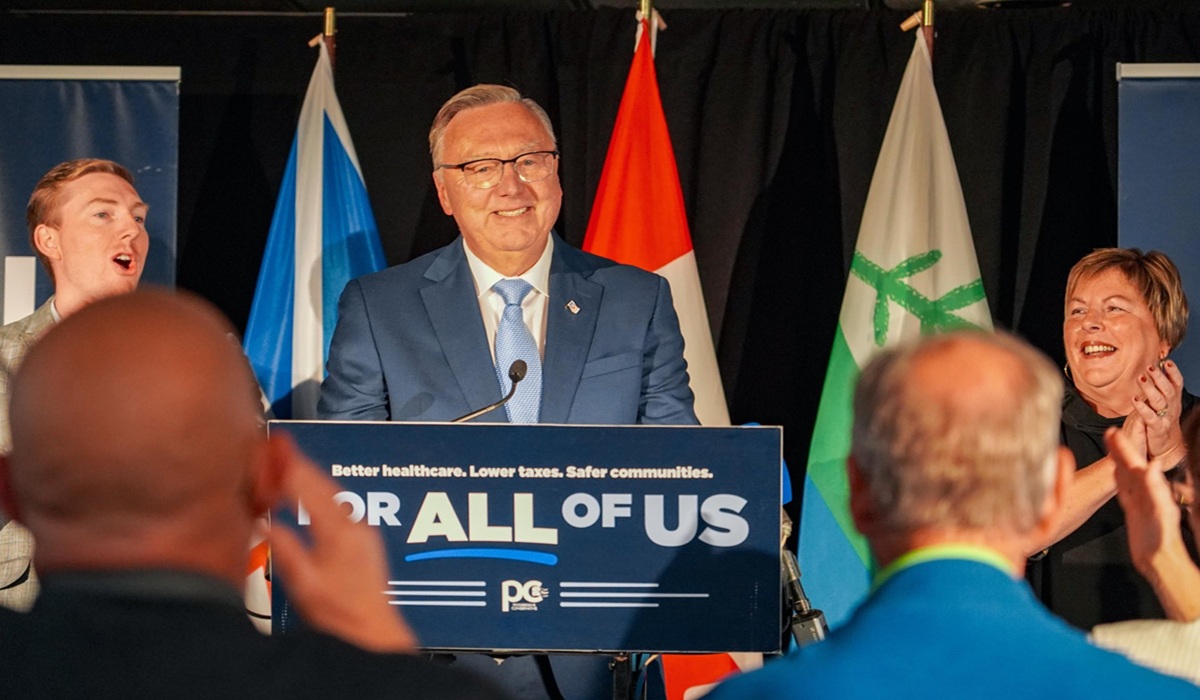Canada’s Wealth Paradox: Why a Resource-Rich Nation Lives Like It’s Poor
- TDS News
- Canada
- October 20, 2025
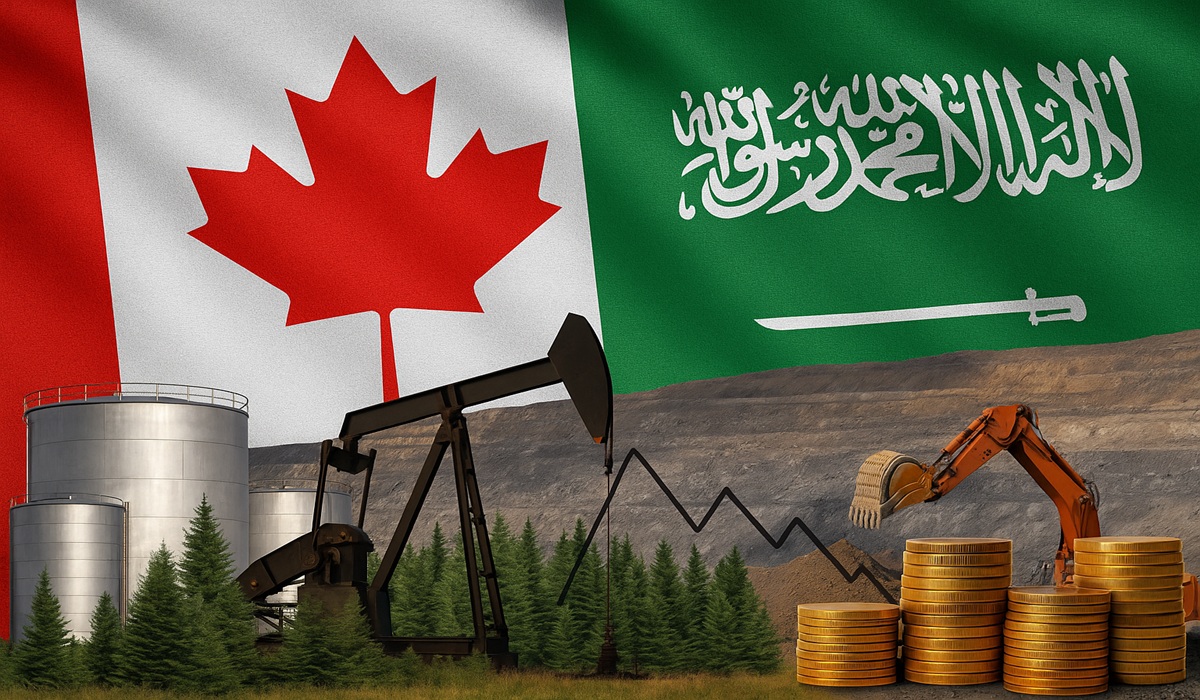
By Donovan Martin Sr, Editor in Chief
Two nations stand as monuments to natural abundance, their wealth resting deep beneath the soil—one carved by snow and pine, the other by sand and sun. Both hold resources that shape global markets, yet the experiences of their citizens could not be more different. In the oil-rich desert, citizens live tax-free with government-funded housing, healthcare, and education. In the northern federation, millions juggle debt, rising rents, and uncertainty about the future. The question isn’t whether resources exist—it’s how they’re used, and for whom.
Our country carries a national debt exceeding $1.2 trillion, despite sitting on some of the most valuable reserves of oil, gas, timber, and minerals on Earth. Meanwhile, the Gulf kingdom—roughly equal in population—keeps its debt near 25% of GDP, using surpluses from energy exports to grow a sovereign wealth fund approaching $900 billion. It invests its oil profits into futuristic cities, social infrastructure, and citizen benefits. By contrast, our government continues to borrow to sustain programs that should already be funded by our own natural wealth.
The irony is painful. A nation that exports billions in energy and raw materials should not be importing poverty. We’ve allowed layers of policy, process, and hesitation to drain the life out of industries capable of funding prosperity for generations. Environmental protection is necessary, but it cannot become a cage.
Both economies draw strength from the earth, yet their philosophies differ. The desert monarchy treats oil as a foundation for social investment. Our federation often treats its own resources as moral burdens. The kingdom’s energy giant, Aramco, is the most profitable company on the planet, channeling immense revenues into the public treasury. Here, our oil sands—among the most stringently regulated operations anywhere—are tangled in politics, protests, and paperwork. Projects that could employ thousands languish under endless review, while foreign investors quietly look elsewhere.
It’s not that our environmental conscience is misplaced; it’s that it has become paralyzing. In reality, extraction here follows some of the highest ecological standards in existence. Sites are restored, emissions monitored, and Indigenous consultations enshrined in law. To imagine we are destroying the planet every time we tap into our resources ignores decades of scientific progress. The challenge is not whether to extract, but how to ensure that the wealth created lifts every citizen.
Consider quality of life. In the Middle East, citizens receive electricity, fuel, and housing at prices most Canadians can only imagine. University tuition is covered, and healthcare is guaranteed. The government redistributes resource profits directly, reinforcing national stability. Critics point to authoritarianism and lack of freedoms, but the economic logic is undeniable: when wealth circulates, society stabilizes.
Here at home, the story feels upside down. We boast about universal healthcare, but patients wait months or years for treatment. Students finish degrees with suffocating debt. Families spend half their income on shelter, while wages stagnate and food prices soar. How does a country that exports so much produce citizens who live with so little? The gap between what we could be and what we have become is widening every year.
The truth is that both nations are rich, but only one acts like it. Our forests could supply the world’s timber, our uranium could power continents, and our oil reserves—second only to a handful of others—could fund education, innovation, and housing for all. Instead, we export unrefined wealth and import refined dependence.
It isn’t a question of greed or recklessness. It’s about belief—belief that responsible extraction and prosperity can coexist. Environmental stewardship and economic strength are not enemies; they are twin pillars of a sustainable future. Yet policy after policy suggests we have lost faith in our own ability to do both.
The result is visible on our streets. In cities from Vancouver to Winnipeg to Halifax, tents crowd sidewalks, and addiction has turned entire neighbourhoods into open wounds. Billions are spent every year managing decline—treating symptoms rather than causes. The kingdom, for all its flaws, ensures its citizens have roofs over their heads. It doesn’t allow homelessness or large-scale addiction to erode social fabric. Here, bureaucracy and fragmented programs often perpetuate the very problems they’re meant to solve.
It’s impossible not to ask: if a desert state can provide free housing and education through its energy wealth, why can’t we? We are safer, more diverse, and more resource-rich per capita. Our potential dwarfs that of many nations that have achieved self-sufficiency. The issue isn’t scarcity; it’s hesitation.
The climate debate has become our moral battlefield, but we must ask whether our sacrifices are achieving anything measurable. The global emission curve won’t bend because Canadians use fewer pipelines—it bends when the dirtiest producers are replaced by cleaner ones. Our energy, extracted under world-leading environmental rules, is part of the solution, not the problem. If we refuse to supply it, less responsible nations will. That’s not leadership; that’s self-sabotage.
The real question isn’t “should we produce?” but “who benefits when we don’t?” Our competitors fill the vacuum, enriching themselves with dirtier production methods. Meanwhile, our workers lose jobs, our students sink deeper into debt, and our government borrows to sustain programs that should already be self-funded. Responsible extraction is not an environmental sin—it’s an economic necessity.
Imagine an economy where the wealth from oil, minerals, and timber flows into a national endowment—funding free universities, affordable housing, and healthcare modernization. Imagine a sovereign fund that pays dividends to citizens, as some nations already do. These are not utopian dreams. Smaller, less resource-endowed countries have achieved it. The path is not through austerity or apology, but through intelligent stewardship.
Poverty does not save the planet; prosperity does. Only wealthy, confident nations can afford innovation, clean technology, and restoration. When environmental caution becomes economic paralysis, both nature and people suffer. It’s time to stop pretending that doing less somehow makes us more virtuous.
Our federation should not be buried under debt when the ground beneath us holds abundance enough to sustain generations. Borrowing should fund vision, not survival. We should not depend on foreign investment or imported goods when our own industries could thrive under supportive, streamlined governance. What we lack is not capacity—it’s conviction.
The Gulf state, for all its controversies, believes in its value. It sees its resources as blessings to be managed, not curses to be hidden. Our own leadership, by contrast, often treats prosperity as something to apologize for. That hesitation costs jobs, weakens our dollar, and leaves millions struggling while unimaginable wealth lies untouched beneath our feet.
If we truly want a nation free of poverty, addiction, and debt—one where students learn without fear of loans and families live without fear of eviction—we must stop apologizing for being rich. Resource wealth, managed responsibly, is not the enemy of progress; it is the foundation of it. The world will always need what we have. The question is whether we will have the courage to use it—for our people, for our children, and for the future that still lies waiting under our own soil.




